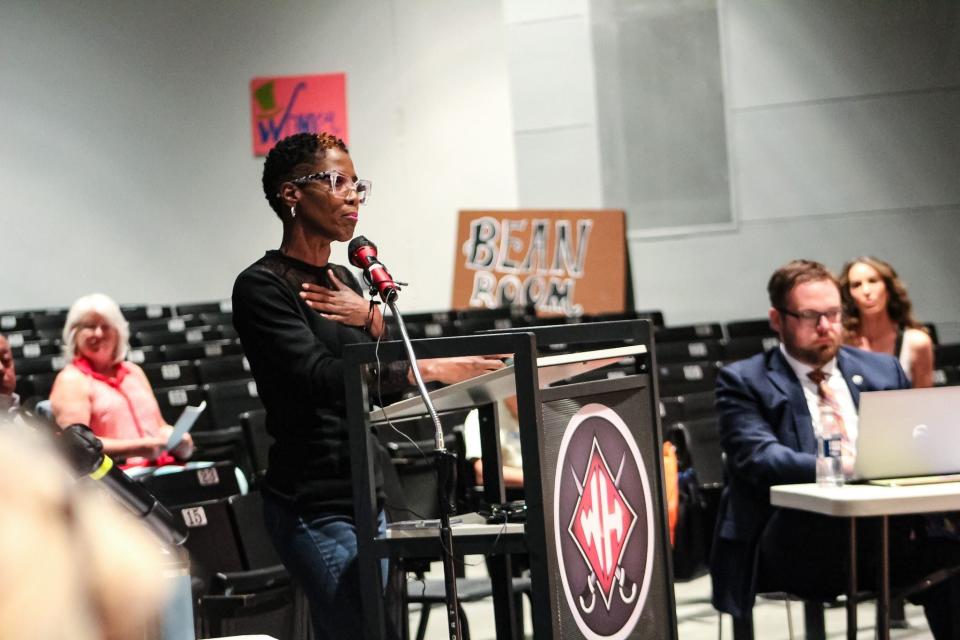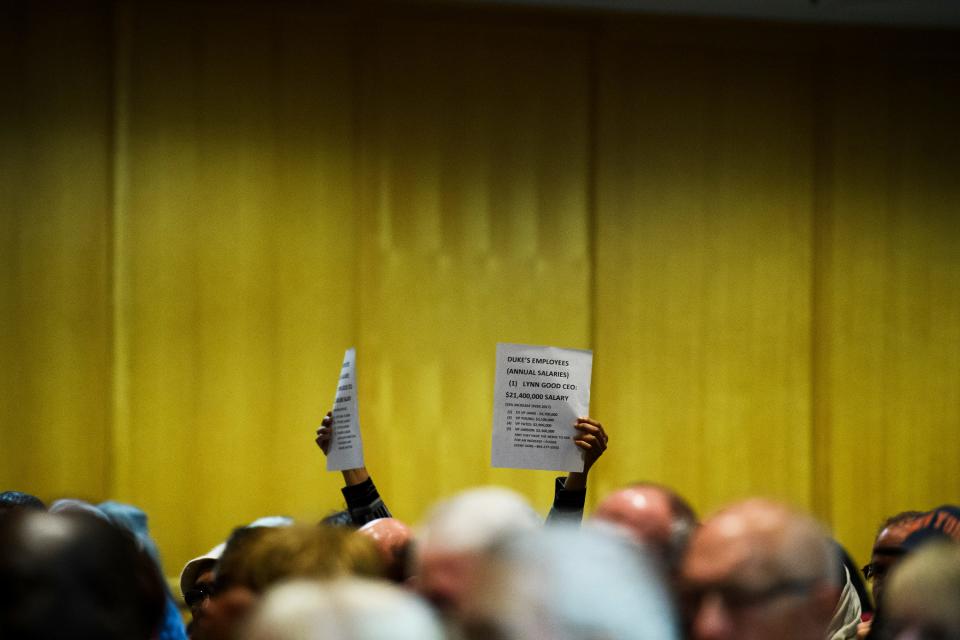Duke settlement could mean less drastic price hikes in rate case, affordability study
Duke Energy and six other parties filed a settlement agreement Friday regarding Duke’s controversial residential electric rate increase case.
The settlement could lessen the proposed monthly rate hike for customers beginning in August and establish a Low-Income Affordability Working Group to create more programs to assist customers.
Last night, Duke and the Public Service Commission (PSC), which regulates utilities in the state, heard from customers for the final time before the PSC decides Duke’s case.
In January, Duke requested a two-part cost hike for residential electric rates that would increase costs by nearly 20%. They faced criticism from customers in the Upstate, who voiced concerns about how the cost would impact them.
Duke initially requested $323 million in increased revenue. In the settlement, they lessened the request to $240 million, a decrease of about 26%.
If the PSC adopts the settlement, a customer using 1,000 kilowatt hours each month would see an increase of about $12.53 each month beginning in August 2024 and $6.42 each month starting in August 2026.
The initial application would have cost the same customer about $5 more in 2024 and $4 more in 2026.
The South Carolina Office of Regulatory Staff, the South Carolina Energy Users Committee, the Southern Alliance for Clean Energy, the Coastal Conservation League, Vote Solar and the South Carolina Small Business Chamber of Commerce joined Duke Energy Carolinas in the settlement agreement.
Walmart and CEC Recycling did not sign the settlement agreement but noted that neither company opposed it. However, the South Carolina Department of Consumer Affairs did not support the settlement.
On Monday morning, representatives from the company and other settling parties met for a merits hearing.Because the new settlement, which is 51 pages long, was filed on Friday, the PSC and involved parties are still “trying to parse through everything,” said PSC Chair Florence P. Belser.
Consequently, Belser recessed Monday’s hearing, which will resume on Thursday, May 23, at 9 a.m. to give everyone involved more time to review the settlement.
“I'm not trying to drag this out,” Belser said. “I just want all parties and the commission to have the opportunity to be as familiar as possible with the settlement agreement and with other testimony that's before the commission.”

During Monday’s hearing, Duke’s Deputy General Counsel Camal O. Robinson said the company agreed to reduce overall revenue costs.
“The settlement specifically provides for a 26% lower revenue impact than that requested by the company, and also provides that the company will make a $2 million shareholder contribution to fund a Low-Income Affordability Study in South Carolina and low-income weatherization programs,” Robinson said.
The $2 million will come from shareholders, Robinson said, rather than customers.
According to the settlement, $1 million will go to weatherization programs, or programs that help reduce energy consumption. An example of weatherization is upgrading insulation or adding moisture control to a home.
The other $1 million will go to a study modeled after a similar Duke program in North Carolina to evaluate energy consumption for lower-income customers. The study will be completed by the end of 2025. The company claimed it would evaluate current programs and search for additional protection for customers struggling to afford their electric bills.
Duke also promised to improve their Residential Neighborhood Energy Savings program (NES).

While several parties agreed, the S.C. Department of Consumer Affairs said they could not find common ground with the company, Advocacy Director and Deputy Consumer Advocate Roger Hall said.
“The Department of Consumer Affairs did engage in good faith negotiations with all the parties in this matter. Our aim and any negotiations or any hearing is to get the best deal possible for residential customers while recognizing the needs of the other customer classes and any other interest groups,” Hall said. “Unfortunately, we were just not able to get there in this matter.”
The PSC held its final hearing for customers last night. Duke, the PSC, and the other parties involved in the settlement will meet at the next hearing on Thursday. After the hearings, the PSC will decide whether to adopt the settlement.
Sarah Swetlik covers climate change and environmental issues in South Carolina's Upstate for The Greenville News. Reach her at sswetlik@gannett.com or on X at @sarahgswetlik.
Have a question for Sustainability with Sarah? Ask here or email sswetlik@gannett.com.
This article originally appeared on Greenville News: Proposed settlement decreases Duke Energy revenue request by 26%
